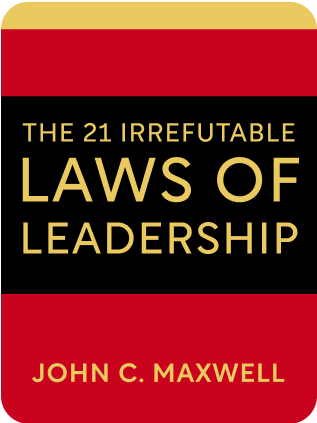

This article is an excerpt from the Shortform book guide to "The 21 Irrefutable Laws Of Leadership" by John C. Maxwell. Shortform has the world's best summaries and analyses of books you should be reading.
Like this article? Sign up for a free trial here .
What is the Law of Victory? What do you think all victorious leaders have in common?
The Law of Victory is the 15th law of leadership by John C. Maxwell. According to this law, true leaders aspire to victory, so much so, that they don’t even bother with a Plan B because they are that confident Plan A will work.
Read about John C. Maxwell’s Law of Victory and how to put it to work for your business.
John C. Maxwell’s Law #15: The Law of Victory
Good leaders accept only victory. Failure or quitting is not an option. Victory-seeking leaders are responsible, passionate, creative, and utterly committed to their vision.
One of the best places to study the Law of Victory is in sports—often leaders are behind the scenes, but coaches are out in the open. You can immediately see the outcome of their decisions when their teams score or win the game.
Victory requires all three of the following:
- Unified vision. It doesn’t matter how much talent there is within an organization if it’s all going in different directions. Everyone must consider winning to be the same thing.
- For example, when John C. Maxwell played high school basketball, the juniors and seniors on the team didn’t get along and the coach ended up making two separate squads. The team did poorly—people played for their age group, not for the team.
- Variety in skills. Each person on the team contributes something different. You need different skills to win.
- For example, a staff made up entirely of receptionists isn’t going to be as effective as a staff with people in different roles.
- Pitfall alert! If you’re a natural leader, you’re more likely to forget this principle.
- A strong leader. The above two points don’t happen naturally. A team needs someone to guide people in unifying their vision, and someone to bring diverse people together (remember Law #9, which says that people attract people similar to themselves).
- For example, consider a sports team again. It’s impossible to win without talented athletes, but even if you have talented athletes, it’s possible to lose. A team needs a good coach.
Applying the Law of Victory: Winston Churchill
Before Winston Churchill became prime minister, he began expressing his opinions about the danger of Nazis. Because Churchill practiced Law #8 (leaders pay attention to intangibles), he anticipated that Great Britain was going to have to fight the Nazis at some point. Other British leaders didn’t listen or didn’t act, and eventually Churchill became prime minister. In his first speech, he said: “You ask, what is our aim? I can answer in one word: It is victory, victory at all costs, victory in spite of all terror, victory, however long and hard the road may be; for without victory, there is no survival.” Churchill wouldn’t compromise. He wouldn’t accept a deal with Hitler. The only thing he would accept was winning.
To win, Churchill deployed troops against Mussolini, allied himself with Stalin even though he hated communism, and developed a relationship with President Franklin Roosevelt, who he believed would help him win. Roosevelt also practiced this law (for example, he dealt with the impossible situation that was the Great Depression), and his leadership, combined with Churchill’s, helped win the war.
Final Words
If you struggle to harness a winner’s mentality, it may be because your leadership, vision, or organization is wrong. If you’re not the right leader for a certain vision, find a new vision and/or a new organization.

———End of Preview———
Like what you just read? Read the rest of the world's best book summary and analysis of John C. Maxwell's "The 21 Irrefutable Laws Of Leadership" at Shortform .
Here's what you'll find in our full The 21 Irrefutable Laws Of Leadership summary :
- Why working with people is the only way to do meaningful work
- How to become the kind of person that can get things done
- Why you don't need to be good at all the laws of leadership to be a good leader






